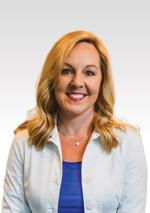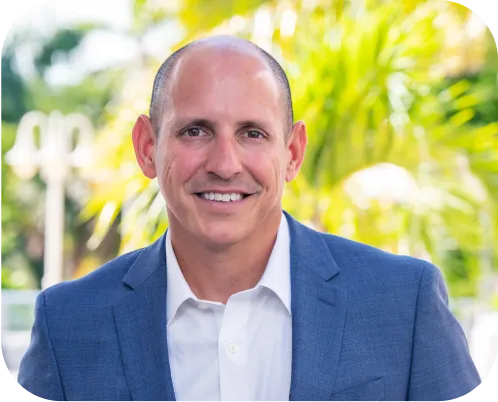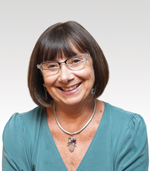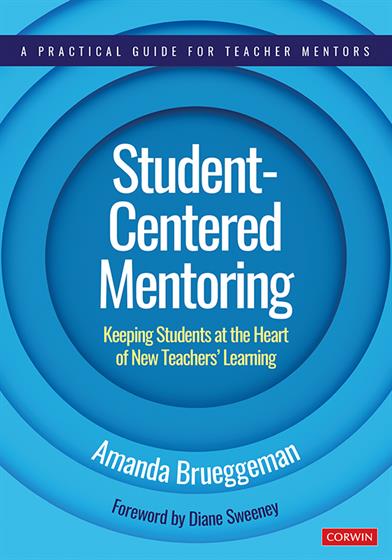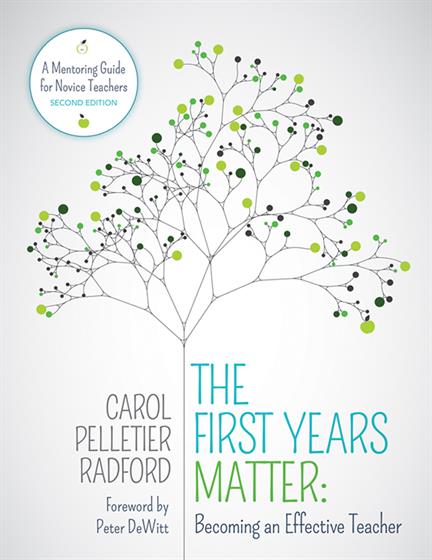[MUSIC PLAYING]
NARRATOR: Welcome to Corwin's Teacher to Teacher podcast with host, Carol Pelletier Radford. Carol is an experienced
classroom teacher and university educator, founder of mentoringandaction.com, and author of four best selling
professional books for teachers. She believes the best form of professional learning happens when teachers
engage in authentic conversations and share their wisdom.
In every episode, Carol and her guests share stories about pivotal moments in their careers, successful
classroom strategies, and personal actions they take to minimize stress and stay healthy. The Teacher to Teacher
podcast is a place to engage in authentic conversation and reflection with experienced educators. We hope these
conversations will energize you, keep you inspired, and remind you why you chose to become a teacher.
SANDRA
HOLLINS
ALEXANDER:
Hello, and welcome to the Teacher to Teacher podcast. I'm Sandra Hollins Alexander, Associate Vice-President,
Content Advisor, and Scholar here at Corwin. This season of the podcast focuses on mentoring and action. We
have such a rich episode for you today centered around the topic of student voices. Our guests are Amanda
Brueggeman and Marcel Monnar.
Amanda Brueggeman has dedicated over 20 years to education, beginning her career as an elementary
classroom teacher, and later serving as a literacy coach. Currently, she trains instructional coaches in studentcentered
coaching, and provides professional learning for new teacher mentors, drawing from her book, Studentcentered
Mentoring: Keeping Students at the Heart of Teacher's Learning.
As the founder and president of One on One learning, Marcel Monnar has built a nationally recognized
organization committed to helping students succeed through personalized education. Inspired by his own
challenges as a student, he built an organization that has helped hundreds of thousands of learners thrive by
focusing on individualized instruction, family engagement, and educator empowerment.
And I just want to say what I know about Amanda Brueggeman, she is always thinking about the students. As you
heard from her book title, students are at the heart of new teachers learning. Her enthusiasm and her passion for
supporting teachers in this area is infectious. So I'm so excited that she will be able to then have a conversation
with Marcel, who is really making a difference in schools and in the community.
Wow, how amazing that Marcel is utilizing his own learned experiences to think through how to create an
organization that will extend its territory and be able to help even more students in more communities. And so,
as educators, it is important to continuously reflect on our practices and make adjustments that prioritize the
success and growth of our students.
This episode's discussion highlights the significance of asking questions and fostering a classroom community
that encourages open communication and feedback from students. Overall, the conversation emphasizes the
need for educators to be mindful of student voices and to focus on student learning in both mentoring and
teaching. Let's listen in to this enlightening conversation.
CAROL
PELLETIER
RADFORD:
Hello, everyone. I'm Carol Pelletier Radford, and this is the Teacher to Teacher podcast. And we are on episode
nine. Can you believe it? And the topic for today is student voices. And we all know the purpose of mentoring, the
theme for this whole podcast season, has been mentoring and action in mentoring. But I would be totally remiss
if we didn't talk about students because that's the purpose of mentoring.
Ultimately, my work with mentoring novice teachers and their mentors is to help students be more successful in
their classrooms. So this is a topic that's pretty close to my heart. And I'll share a story about how student voices
got integrated into mentoring conversations a little bit later.
I have two fabulous guests today, who are very well versed in students and student voices and helping to have
students just be part, a more visible part, of all the work that we do in schools, and not having it be done to them
all the time, but having them be part of the conversation and the ways in which they can groom themselves to be
leaders, and assist their teachers in being better teachers. Which I'll share a little bit about that.
So I'm going to have each of my guests-- Marcel and Amanda, thank you for being here. Marcel, would you
introduce yourself and tell me just your background as a former teacher and who you are? And then we'll have
Amanda. Welcome!
MARCEL
MONNAR:
Sure, thank you. Thank you, Carol. Pleasure to be here. I am a former special education teacher. I taught
kindergarten through fifth grade ESE for a couple of years before continuing on my path and as founder and
president of One on One Learning, in which we currently provide what we design and implement small group,
highly individualized intervention programs for students in need.
And we do this partnering with school districts, states, and other agencies throughout the United States. And
really, our focus is to truly support students incorporating mentoring through their academic journey between the
grades of kindergarten through 12th grade.
CAROL
PELLETIER
RADFORD:
Thank you. Thank you for that. And when I-- I've met Marcel in person at a conference earlier-- the end of last
year, earlier this year. And I wanted your voice to be heard on the podcast. So I'm glad you were able to bring
what you're going to be sharing with us to life. Amanda, Dr, Amanda, I love to highlight my colleagues who have
achieved their doctoral, earned their doctorates. Please introduce yourself and share your background as an
educator.
AMANDA
BRUEGGEMAN:
Thank you so much, Carol. I'm really glad to get to join you all today, too. So I have about 20 years or more in
education. I started off as an elementary teacher. I got to teach both fourth and fifth grade for about 10 years. I
even looped with my students one year, which was a great experience.
And then I was a literacy instructional coach in my local district for 10 years before I started doing full time
consulting as a student-centered coaching practitioner consultant. And then also, I support new teachers and
mentors in trainings and that. And my big focus with that support in both avenues of the mentoring and the
coaching has been to how we can have a perspective on students with the support that we give each other as
well as new teachers.
So it's really important for me to really ground our lens in students and to, I think, be true to the topic at hand is
hearing their student voices in the conversations and in our work. So I'm really excited that, yes, I got my
doctorate in teacher leadership. I decided not to go to admin.
CAROL
PELLETIER
RADFORD:
Love that! Love that! Love teacher leadership, that's my area of expertise as well, thank you. And that's a big
decision. Because many of us only see the pathway into educational administration, which is leadership. But I felt
the same way when I earned my doctorate that I wanted to focus on mentoring and teacher leadership.
So here we are having a conversation about teacher leadership, student leadership, how this all weaves together.
And it's under that big umbrella that I want to introduce in this season of mentoring, how this mentoring fits. So
thank you both. So what I love about the podcast is the two guests don't know each other. And we're going to
have this conversation to react to our points of view and hear some ideas.
And it's like going to a conference, listening to someone that we sat next to at an event. So before we get there, I
love mentoring. And I want to delve into-- each of you have a story, we all do-- of how mentors have helped us, or
how we have mentored someone.
So let's get personal here before we get into the topic of student voices, which we know we're going to get to.
Marcel, why is mentoring important to you? How did it show up in your life? How do you feel when I say share a
story about being mentored?
MARCEL
MONNAR:
My initial reaction is so many to choose from. But in narrowing it down really to, if you can say, some type of
ground zero when it comes to mentoring, I go back to an experience I had while I was completing my degree at
Florida International University. My degree is in specific learning disabilities. And my professor, Dr. Judith Cohen,
was teaching a class on instructional strategies for early literacy.
And I myself struggled in school when I was a child. I mean, I was not a great learner. Specifically when it came
to reading, It was a challenge for me. Never really recognized that until I got older. And through this class and in
speaking with her, she really opened my eyes to how teaching in different ways really can connect with different
students. And I realized that, that was what was missing when I was in school.
I came from a schooling generation, where everyone sat in the classroom and everyone open to the same page.
And there were no centers. There was no rotations. And it was really tough to engage myself and other students,
or children of friends of mine. But in seeing things through her eyes and listening to the way that she explained
just ways of connecting with students, it really opened up my eyes. And it gave me motivation to want to be able
to provide this, real time, to other students.
And the trajectory of that, what's that done for me personally but also my life and my career, has just changed
completely, massively. And I have helped hundreds and thousands of students. And it's something that I do to
this day is I try to incorporate mentoring and bringing a perspective. To me, mentoring is bringing perspective,
making things relatable from different perspectives that helps me grow and helps others identify what obstacles
might be in their way that are blocking their growth, so that they can overcome these obstacles and continue to
grow.
CAROL
PELLETIER
RADFORD:
Well, I'm so grateful that you could honor her and say her name. And that all of us who are listening, all the
listeners, it's so important for us every once in a while to just dive in and say the name out loud of these people
that so generously and effortlessly coach us and guide us through questions. Or whatever that aha moment, it's
buried in there.
And sometimes, we don't take the time to reveal it. So I really want to honor you, Marcel, for being honest about
who actually helped you and put you on the trajectory that is helping others. So, Amanda, what's your reaction to
that story? What do you want to say to Marcel?
AMANDA
BRUEGGEMAN:
Well, I started making some notes, actually. [LAUGHTER] Because I was thinking about when you were talking
about yourself as a learner and how you had difficulties as a learner and then having someone be able to guide
you to be able to then help students and that and just with those learning disabilities, that struck me and really
made me think about how we can help other teachers and help.
Because I also get to work as an adjunct professor and getting to help some of those new teachers think about,
what is it that they can contribute to their students? And that's something that stood out to your story is that you
have something to pass along, that contribution.
CAROL
PELLETIER
RADFORD:
And there's so much in that story that you can even mull over later. But as I was listening to it, it just reminded
me of how many teachers go into teaching because of that, because they struggled as learners. You took your
journey, not-- you were a teacher in special Ed, but then you took it even further.
And that little seed of what your professor did as you were investigating your life's path was very powerful. That
little seed has grown into this massive tree. So thank you, again. So Amanda, what's your story then? Where did
mentoring show up that touched your heart in a different way?
AMANDA
BRUEGGEMAN:
Oh, I, like Marcel, thought about there's so many different moments and experiences that I could talk about
today. But I think I'm going to go with one that was during my first year as an instructional coach. Whenever I
was actually working with the person that mentored me, when I first come to the district that I worked for so
long, when we were working with our new teacher that was her mentee, Tori.
And I just remember Tori having that passion for teaching like I had. And so I really connected with her, that
desire just to want to help students and want to just be a great teacher. And I remember many conversations
with Diane, her mentor, how we could support and keep that passion alive for Tori.
And just remembering the belief conversations that we wanted to have with Tori, too, because I feel like us
talking about our beliefs and how we can impact students is so important. And continuing to revisit that, both for
Diane and myself, was also really important, I think, to remind ourselves of, why do we do what we do? It's not
just to take a textbook and put it in hand of students and teach from the teacher manual. There's so much more
to the work that we do.
And helping Tori to find that passion, too, I think, is so important of, what can we teach students? It's not just
about the content and the academic side of it. It's also, how do we help students believe in themselves? How do
we really help students have that ownership of their learning in the work that they do?
And helping Tori learn how to plan around her student needs, around her student, even what they like and
dislike, so that it can help her be a better teacher. Those are probably the pieces that I remember so much about
many planning conversations that Diane and Tori and I would all three have together. And so that collective, I
think, is so important that we formed that net of support for Diane. But really, it also helped us, too.
CAROL
PELLETIER
RADFORD:
What I'm hearing in your story that I think is really important to unpack a little is that intentional mentoring from
the mentors, and knowing what you were doing, as opposed to what mentoring used to be like before I studied it
and before the paradigm shifted to collaborative mentoring from directed mentoring. It was just like a buddy
system. And mentors were trying to help, but we really didn't know how to do that.
And what I love about what you just shared, that our listeners can underline, is that there's more to it than just
memorizing and learning the content. It's that, who are you going to be? Who are you going to be as a student?
But it's as the mentor, too. So it's happening all on multiple layers with the classroom teacher, the mentor, the
students, the novice teacher. Thank you for that depth of story. Marcel, what's your reaction to Amanda's insight?
MARCEL
MONNAR:
I mean, I-- in listening to it, I connected with it so much in terms of-- especially when you're talking about
purpose. Why are we teaching? And why are we helping students? And I think that is such a key piece that
someone can forget along the way because you can get bogged down with outside factors and compliance
requirements, or whatever school needs your administration is asking of you.
But really going back to the purpose of why you're teaching and specifically why you're teaching a particular
student. Because every student might need a different, or have a different need. So really walking through that
and learning strategies to identify that and plan around it, I think, is a key skill that educators and even students
can learn and are needed to learn.
CAROL
PELLETIER
RADFORD:
Yes. And students can learn how they learn best if we let them tell us. And I love Howard Gardner's work on
multiple intelligences. And I just feel when I was doing my doctoral work there-- and I actually met him a couple
of times. He'd pass in the hallway and I'd be like, oh my goodness, that's Howard Gardner. And he was just such a
presence for me because it was this huge insight that we all learned differently.
And yet, like Marcel was saying, when we were all in school, well, when I was in school, it was all the same. And it
was that's just how teacher preparation was. So Amanda is working in teacher prep. I'm working with teacher
schools. Marcel is working in the schools with students. We're all coming at it. We have a different entry point.
But the big ideas that, I think, we all need to keep saying out loud is multiple intelligences. There's so many
different ways to share our purposes in life and what we need to learn. It's complicated. It's a complicated
discussion.
We would read his articles and just go, wow, this is clear but big ideas. Because his ideas really influence
everything-- teacher education, purpose, everything And I'm sure you integrate them into both of your work. So
that's a plug for Howard Gardner. I hope you're listening out there.
[LAUGHTER]
All right, here's a story that I'm going to share of how student voices and student perspectives got integrated into
my mentoring work intentionally. So I'd been doing mentoring, mentor training, got the doctorate, did the whole
thing. And mentoring can be very directive as teaching can be-- training the mentor how to a mentor. And then
the paradigm starts to shift to more of a collaborative approach. And I get more involved with the school district.
So I was working in a large urban school district, preparing and supporting their mentors. And the complaints that
kept showing up related to the novice teachers being overwhelmed and not knowing what to do and their
students not being successful. And the mentors would bring it to class. I would try to unpack it. And we would try
to figure out, how can you be more intentional in your mentoring while this is going on?
And someone must have mentioned something about off the cuff, like, oh, let's ask the students. Let's just ask
the students how the teacher can be a better teacher. And we all laughed. And then I said, well, let's pilot
something. All right, I've got this class of college people and mentoring training. We're going to assign that you're
going to do a project with your novice teacher together collaboratively, and asking the students how they think
the teacher could be a better teacher.
So we designed a anonymous student survey. I developed it with the mentors around the five teaching standards
because we wanted to know that the teacher was hitting the standards. And then the teacher, mentor, and the
novice got to add some questions because of things that they wanted to know if the students were responding.
And we set about having the mentor give the survey to the students.
Now, here, the whole goal was to have a mentoring conversation to look at the data together. So this is where it
was a little different. Everybody's done surveys. We asked the students. But in real time, in a mentor-mentee, do
we look at the data? Not wait till April when we find out that the teacher didn't do well and the students didn't like
her and blah, blah, blah, but in real time. So the teacher could actually change her practice like Tori, what you
were doing with Tori. But it was from the students.
I have videos of these that I hope our listeners-- we're going to put one of the videos-- we'll post it in the notes so
you can see it. So we did this as a research project to see, would this work? We actually videotaped the students
and recorded. I interviewed them and say, hey, how do you feel about taking a survey about telling your
teacher? And that survey is so awesome. Everybody should watch it.
Because these students are like, oh, you're going to ask me? I think that's a really good idea because I'm actually
the one the teacher is teaching. And it's hilarious. It's like three minutes long. But it's a teaser because a lot of
my critics were saying, you can't do that. You're just going to ask students and then the teacher is going to-- I got
a lot of critique not to do it.
And I was like, I'm doing it. And I'm going to get evidence from the students that they want to do it, because the
big thing was they're all going to say the teacher is bad. Because that's what students will do, middle school
students. So that's what I was getting from. So I did elementary, middle, and high. And then we recorded the
conversation between the mentor and the mentee, looking at the students.
So this is what we learned. This is what I discovered about student voices. They don't all say the teacher is bad.
They actually tell the truth. There might be one or two and the teacher knows who they are without the names,
even though it's anonymous. [LAUGHTER] And we discovered that we're themes that the teacher could grab on
to without the mentor even telling the novice what to do.
So the key point of the survey was the mentor and the novice read the data, and they only said-- the question
was, what three things stand out to you in the data? So it was just like a Google aggregation. It wasn't anything
sophisticated. If they were open-ended questions, we just listed them, very simple.
And what the mentor had to do is not tell anything. And the whole inquiry approach was the goal was to have the
novice teacher see what the students were saying. And it was so-- I think it's probably my best work. If I look
back at all the projects that I've done, this anonymous student survey-- everything's on my website if you want
to see the whole thing-- showed me the power of the aggregate voice so that the novice could pick a theme and
actually feel like they were doing something to change their practice in real time.
So I'm going to just leave it there, it goes on. And let me just tell you one thing. So every novice that we did the
pilot on, the one question that they all looked at and wanted and said without fail in the interview was, all the
students like me, they all asked, do you like your teacher, or something phrased that way.
And that was so important, it almost didn't matter whatever the student said about changing the practice. It was
like, oh, at least-- oh, at least they like me. I can fix this. I can fix that. So OK, I'm going to leave it at that.
Amanda, reaction, response, what do you think about that idea of how I integrate it into mentoring?
[LAUGHTER]
AMANDA
BRUEGGEMAN:
Well, I love the uniqueness of having the mentor and the new teacher talk about the data together. Because I
encourage new teachers to gather feedback from students in various ways. And surveys being one of those,
options too, because that can help you with those adjustments. And I think something that stood out the most to
me is the feeling that they needed to have that connection with their students.
So they need to know that they're building those relationships with their students to know, of going back to what I
was talking about with Tori earlier, can I believe that I have an impact on my students? Well, if I know that I have
a rapport with them, then that can happen, so.
CAROL
PELLETIER
RADFORD:
Yes, I love the way you tease that out. Marcel, what do you hear from that story? And let me just say, yes, I think
the uniqueness is them doing it together. But it just happened that I created that because I was in this class and
the mentors needed something to do. And then what changed? It was that they couldn't talk. I had to literally
create a whole protocol where the mentor couldn't point anything out. I'm like, no, you can't point anything out.
And then that was the magic that we caught on the video was the awareness from the novice to see it, that they
could see it, but the guidance from the questions. Well, do you see this, or do you-- whatever. Marcel, what do
you thi-- I'm getting all excited because I want to do this.
MARCEL
MONNAR:
No, it's such a passionate topic, and I agree with you. I'm sure we can just sit here for another hour just talking
about this alone. Which, by the way, I give you kudos. It's a great practice to be brave enough to go try to get
feedback from students. And what I see is that, beneficially, teachers are hearing what I think is practical and
functional feedback.
You're making it where it's very relatable for a teacher to help them adjust a teaching approach or teaching
strategy, change their mindset a little bit so that it connects more with their audience. And I think that that's
very important in teaching that we to be-- without compromising the standards, as you mentioned, you wanted to
make sure that everything stuck to standards. I just feel that as a teacher or even as a mentor, we need to be
able to shift and move with our audience to make it so that they can connect and really get out of it, what we're
trying to deliver and the objectives we're trying to get across.
CAROL
PELLETIER
RADFORD:
And you could-- both of you could do this simple technique in your own work, which I do want to hear more about.
But it just honors the student voice in a way. But it's not personal identifying anybody in particular.
But the one thing that I did notice in the research when we did it is that there were the outliers. And at first, I
was, let's just look at the themes. I was preparing the mentors for these conversations and coaching them. And
in my first round, I was like, well, let's not look at the outlier, who says I hate the teacher, and so forth. And then I
said, no, yes, let's look at the outlier.
Because the outlier, you may or may not recognize who that person is, but it will draw your attention as a
teacher to the issue. So for example, maybe there was a-- I think there was one that the teacher doesn't know
how to say my name because we asked those kinds of questions. And as Amanda, you're saying, you can't build
a relationship if you're saying the person's name wrong incorrectly all the time-- or you're not asking, I might say
it incorrectly, but I'm saying, gee, I'm sorry, I can't say your name right. There's some relational conversation
around that.
So when I saw that one, I said, no. Now, the teacher didn't know who it was. She totally changed her practice to
go through the whole class the next day and ask and do the names. And it shifted the whole way her students
responded to her. She didn't have to know who the person was. It shifted. So response to that Amanda reaction to
outliers, or a student who does say something negative, what do we do with that? We don't ignore it. What do
you think?
AMANDA
BRUEGGEMAN:
You make me think about how a classroom community is so important for that vulnerability, for students to be
able to share those things, and whether it's in the anonymous survey, or whether it's, as time goes on, how those
surveys can lead to building that strong classroom community, that culture that you want to invite students to be
open to sharing, whether it's anonymous or whether it's not. And I feel like that's for us to be able to hear
students into that mix. That's so important to be able to create that culture of openness.
CAROL
PELLETIER
RADFORD:
That they are part of that community. [LAUGHTER]
AMANDA
BRUEGGEMAN:
Yes.
CAROL
PELLETIER
RADFORD:
We're not doing it to them. Marcel, reaction, comments about this before we dive into each of your work.
MARCEL
MONNAR:
Yeah, I mean, just when it comes to outliers, I personally believe-- and even within our organization, I emphasize
never ignore the outliers because that's how things-- students, not things-- but students really fall through the
cracks. And sometimes, those quiet ones, sometimes those small comments, and that small little feedback that
you might disregard goes unnoticed. And it can have the biggest impact. As you mentioned, if anything, it just
brings to light something that you might have overlooked.
CAROL
PELLETIER
RADFORD:
I love that. Yeah, so I learned--
MARCEL
MONNAR:
Every feedback is not the norm. It's those outliers.
CAROL
PELLETIER
RADFORD:
So it isn't just all the research themes and the big ideas. Yes, I agree.
MARCEL
MONNAR:
The average, right?
CAROL
PELLETIER
RADFORD:
Yeah, the average doesn't go anywhere. And you were one of those outliers. And look where you are now,
Marcel, OK. So I want to have each of you share the work that you're doing now that relates to student voice and
just how you're doing it. Amanda, you have books, tell us your book titles. Tell us why you wrote these books.
Let's hear it.
AMANDA
BRUEGGEMAN:
Well, the current book that's out is Student-centered Mentoring. It's all about the mentoring relationship and
partnership between new teachers and mentors through a student-centered lens. So just like you mentioned
earlier, it very much capitalizes on that collaborative approach to taking that lens of students into the mix, very
different than that traditional from before.
And it's just a book that's strategy based. So very simplistic in that you can go to any part of it that would fit your
mentoring. partnership needs to be able to help have some tips and ideas around certain things. Like, for
example, I think this connects really well to the student voice piece is there's a part where I have around
directional supports for new teachers and thinking of the different categories of support types that they might
need.
And I've actually had a new teacher that's taken that concept and done that with their students, too. So North is
the emotional support category. And they've talked with their students about, what are some different things
that would fall under this emotional support category? But I feel like it starts with, we have to have those
conversations between mentor and new teacher. And what could that look like and sound like with our students
to be able to create that culture, that community that we want, build those relationships so that we all feel
emotionally able to learn and be in this place?
CAROL
PELLETIER
RADFORD:
So is the book for mentors and new teachers, or all teachers, or?
AMANDA
BRUEGGEMAN:
So it's written to the audience of mentors for them. But I've had several new teachers that have taken it on as
well. And I've done some work with some schools and districts where they've gotten the text for both. And
they're able to connect with it in many ways, also.
CAROL
PELLETIER
RADFORD:
So Marcel's tutors might benefit as it feels in the--
AMANDA
BRUEGGEMAN:
I'd like to--
CAROL
PELLETIER
RADFORD:
Yeah, we'll talk more about that. Marcel, dive in with your thing and let's go back and forth a little bit. So tell us
all what you're the president of, the world, the president of the world. [LAUGHTER]
MARCEL
MONNAR:
Well, One on One Learning-- yes, One on One Learning is we design and implement small group intervention
programs for schools, school districts, and other agencies throughout the United States. We have been very lucky
to be able to do this for the past 25 years. And we partner, as I mentioned, with various school districts
throughout the country.
Our focus is working with students kindergarten through 12th grade in designing these individualized programs
and implementing them. In addition to just really focusing on teaching and tutoring, literacy and mathematics,
what I think-- which ties right into what we're talking about today-- what I think really helps us continue to grow
and help students is the fact that we incorporate a lot of mentoring strategies into our tutoring sessions.
So we're really not just focusing on those high quality, research-based teaching strategies for literacy,
implementing curriculum. But our tutors and our training and preparation protocol really incorporates various
strategies on mentoring students. That's how to ask questions, what kinds of questions to ask, how to build
rapport. And really going back to some of the things we spoke about earlier is, how students can recognize
themselves and what some of their roadblocks are that can open up those doors to help that allows them to
learn.
And we found that all students can learn, we just got to get through that roadblock or through that obstacle,
which is usually themselves or a misperception of sorts that allows them to do that. And thankfully, we've been
able to help thousands upon thousands. We help somewhere between 15,000 to 16,000 students a year learn
how to read and do math better.
CAROL
PELLETIER
RADFORD:
Oh! And that brings you right back to the beginning story of you as a student, where you are helping yourself,
really, your inner child self, to be successful in school. Amanda, reaction to the work Marcel has created for
himself. [LAUGHTER]
AMANDA
BRUEGGEMAN:
Oh, so I got really excited and I had to hold myself back because there's certain connections. I think it actually
works to that connection of the example that I was giving around support types because I focus so much on a
mentoring strategy of asking questions. One sole strategy is just about asking questions. But then I layer in
different questions throughout the text, too, because it is so important on the questions that we ask.
But then you said something that it makes me excited for my next book that I'm currently working on, it's about
building habits for resilience learners. And we are layering so many questions in there already, as we're starting
to draft this work. Because you name, probably, the best tool that we can put into our toolbox as educators is
asking questions.
CAROL
PELLETIER
RADFORD:
Yes. And that was what I was doing with the mentors, having the mentor ask the novice teacher a question. Like,
what do you see here, instead of me telling them what I see. So we have some interesting themes that have
emerged from this conversation. I can't believe the time is up with this. We could go on forever.
And I hope the two of you will connect with each other, because it seems like you have a lot to share in the
resources. So as we wind down, before I share my affirmations for the listeners, what is your takeaway from this
conversation? Any insight from talking to each other, or to me, or to hearing the story, or just focusing on student
voices? What do you want our listeners to take away, or to emphasize? Amanda, what's showing up for you?
AMANDA
BRUEGGEMAN:
Oh, I think about several different things with our conversation today. But I guess just-- and it probably goes back
to a tip that I think about-- take the time to talk about students, ask questions of each other. Just take that time
because it is valuable time well spent. And from what I've seen in a lot of my research and work in many schools
is that we can easily let that time go by.
And I even had a new teacher and mentor that I've worked with, that she's mentioned that a lot. Natalie says,
don't let the time go by. Take the time to have conversations with each other, with colleagues, with your new
teachers, whoever it is, and ask each other questions. Because it takes a collective to do the job that we have at
hand.
CAROL
PELLETIER
RADFORD:
We're all mentors. So if you're a listener and you're saying oh, I'm not a mentor, I'm not a new teacher, yeah, you
are. We're all mentors. Students are always looking to us. Novice teachers are always looking to everyone. And it
is the collective. It does take a village. It's everyone is mentoring and teaching all the time. Marcel, what do you
want to emphasize, take away?
MARCEL
MONNAR:
I'm going to narrow it down because there are many. But I did want to say that it's inspiring and reassuring just
to be a part of this and hear the different perspectives when it comes to mentoring and the importance of it. I
think that, overall, asking those questions and being vulnerable to listen. And I will add a piece. Being a good
listener is just as important than just being a good question giver.
CAROL
PELLETIER
RADFORD:
Yeah, thank you.
MARCEL
MONNAR:
So being able to actively listen and take in is just as important. But I just--
AMANDA
BRUEGGEMAN:
You'll like one of my strategies. It talks about giving and receiving feedback.
CAROL
PELLETIER
RADFORD:
I love that.
MARCEL
MONNAR:
Communication is both ways, not just one way.
CAROL
PELLETIER
RADFORD:
Yes.
MARCEL
MONNAR:
And I think that being able to do this more often and others just realizing the benefit of it is equally as important
as to all the other research that's out there when it comes to helping students and helping them achieve and
succeed in the classroom. So thank you so much for listening.
CAROL
PELLETIER
RADFORD:
Oh, and I think as teachers, we model everything. Our students are watching us. So when we're good listeners
and good question askers and all of that, they take that in. And then when we honor their opinion and
perspectives, they take that in, too.
So I want to close this fabulous episode. I don't want to say it's my favorite, OK. But it might be. I like to leave the
episode with an affirmation for mentors and one for novice teachers. So the affirmation for mentors today is, I
am a mindful mentor, who focuses my mentoring conversations on student learning. And for novice teachers,
your average affirmation and for all teachers, I am a mindful teacher, who focuses my mentoring and teaching on
student learning.
So I want to thank all of the listeners. Episode nine is closed. And I hope you will join us for episode 10, the final
episode in season 4, which is going to be called "Designing a Transformative Mentoring Program."
NARRATOR: Thanks, everyone, for joining today's Teacher to Teacher conversation. We hope this time together energized
you, inspired you, and reminded you why you chose to become a teacher. You can purchase any of Carol's books
and any books mentioned in the podcast online at www.corwin.com Please leave a review and share this podcast
with your colleagues. Thank you for listening to the Corwin Teacher to Teacher podcast, a place to share teacher
wisdom and engage in authentic conversations with experienced educators.
NARRATOR 2: Come explore Corwin's free new teacher toolkit and resources. We've curated these resources based on
extensive research from teachers, coaches, and principals alike. Whether you are brand new or a veteran
teacher, find ready to go teaching tools at corwin.com today.

